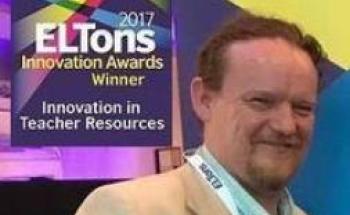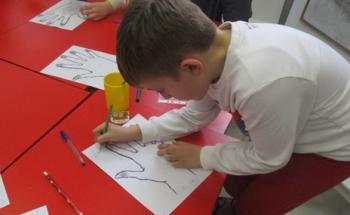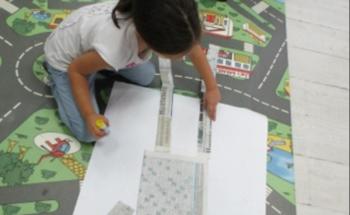
Sustainability through CLIL
This innovative course led by award-winning trainer and author Keith Kelly, develops the UNSDGs for young learners through CLIL, explores a wide range of concepts to do with sustainability and related to the specific SDGs with examples of activities and materials from Anglia School classes to equip teachers with tools to prepare UNSDG lessons suited to learner abilities and needs.
Description
Our 5-day programme covers: an introduction to the UNSDGs for young learners based on the Anglia School curriculum and aims at developing educational experiences where learners see how things are done at home and in other contexts. While exploring behaviours at home and abroad, learners will focus specifically on the United Nations Sustainable Development Goals. Course input for participants follows the following young learner CLIL principles: - Language: subject specific terms + general academic language - Guiding through input text - Guiding through non-text input media - Supporting output writing - Supporting output speaking. Participants are presented with a vast range of examples of practice from Anglia School classes. On this backdrop of principles and practice, our guests are invited to explore themed materials based on the principles, and examples with a view to developing one or more of the UNSDGs for use back in their own classrooms. The UNSDGs developed so far during Putting CLIL into Practice courses include Biodiversity (SDG14 and SDG15), Gender Equality (SDG5), Good Health (SDG2), Life on Land (SDG15), and Responsible Consumption (SDG12). The results of this work can be found in an issue of the Forum for Across the Curriculum Teaching Journal 26.
While exploring sustainability behaviour through home and other contexts, teachers investigate intercultural communication curriculum content; are given an overview of environmental skills for young learners CLIL; organizing and visualizing sustainability concepts; supporting young learner environmental communication in the CLIL classroom.
Learning objectives
Participants will see processes involved in developing an understanding of our personal interactions with the world and environments around us including the natural environment and those where we interact with other people. This includes exploring examples of behaviours which relate to the world around us at home and how other groups affect their own environments both postively and negatively. In exploring these interactions in classroom materials participants will also consider how to set up consider practices at home in comparison with those of others.
Participants will produce activities which develop learner ability to observe behaviours which affect our environment as well as the behaviours of others.
Within the theme of Food and Drink Habits, for example, participants will investigate resources for developing an awareness in learners of origins of ingredients within the foods and drinks they consume and the related environmental footprint this brings. Additionally, participants develop an awareness for incorporating solutions into learning experiences for their students in order to foster problem solving approaches to issues arising in the UNSDGs in the school curriculum.
Participants also integrate practical craft, art, science and other activities into environmental activities and in doing so support and develop UNSDGs throughout their curriculum. At Anglia School we use the content curriculum to foster an awareness of the UNSDGs and solutions, e.g., in art, children use shapes and different materials to create works from recycled materials, suggesting ways and means for reusing resources. Participants explore the Anglia School curriculum for links and interactions with the local environment and consider examples of how to promote learner responsibility for the spaces around them.
Participants work in groups to produce resources developing the SDGs in their own curriculum content which are published in future issues of the FACT Journal.
Methodology & assessment
Environmental education and awareness is developed throughout our curriculum and we implement this skill area by developing learning experiences which enable children to look at how they interact and how others interact with the people, environments and spaces around them. Participants are asked to practice similar activities in workshops, and suggest and create activities for their curricula where this competence can be developed.
The methodology employs ‘up-down’ dynamics during lessons where our activities are specially targeted to meet children’s learning needs. In practice, we prepare activities to move between more and less dynamic experiences in order that our learners can maximize their learning potential. Participants are asked to consider this dynamic factor in sequencing environmental activities they practice and materials produced.
We develop a wide range of age-appropriate environmental learning skills which are presented in our lesson materials and followed by discussion of principles and how to best recycle and consolidate these skills over time. Participants are invited to show this sequencing and recycling of skills in the materials they produce.
A lot of time is invested in appropriate task sequencing from input to output and participants are presented with a rich range of UNSDG resource input in visual and text content materials where methods used to help children process these inputs is explicitly shown, similarly where our learners are asked to speak or write in English, we support their output and participants see this scaffolding in our course materials. Participants are asked to make use of this ‘guided input’ and ‘supported output’ in their own materials writing.
Certification details
The Putting Pre-Primary CLIL into Practice certificate includes a detailed summary of course content covered. The total number of days and hours attended on the course is also indicated. Each certificate is signed by the course trainer, Keith Kelly, dated and stamped with the official institution stamp.
All other documentation can also be provided, signed and stamped where necessary and by request.
In addition, help is given with identifying accommodation, all travel needs, and where requested with tourist information for guided trips.
Pricing, packages and other information
-
Price:400Euro
Additional information
-
Language:English
-
Target audience ISCED:Early childhood education (ISCED 0)Primary education (ISCED 1)Lower secondary education (ISCED 2)
-
Target audience type:TeacherStudent TeacherHead Teacher / Principal
-
Learning time:20-25 hours
Upcoming sessions
Past sessions
More courses by this organiser


Putting Pre-Primary CLIL into Practice


